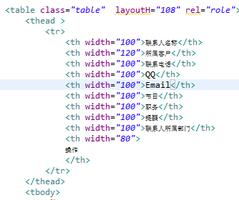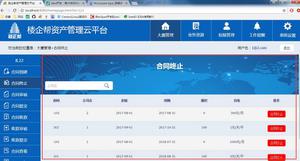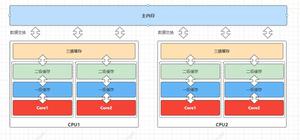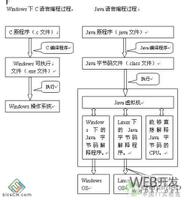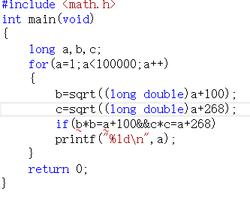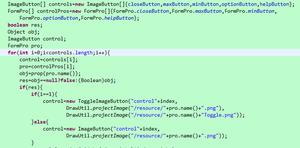R 编程以更改 xtab 表中的列变量和行变量的名称。
要更改 xtab 表中的列变量和行变量的名称,我们可以使用 setNames 函数。
例如,如果我们有一个名为 XTAB 的 xtab 表,并且我们想要更改列变量名称 C 和行变量名称 R,那么我们可以使用以下命令 -
dimnames(XTAB)<-setNames(dimnames(XTAB),c("R","C"))示例 1
以下代码段创建了一个示例数据框 -
Table1<-xtabs(~as.factor(letters[1:5])+letters[1:5])Table1
创建了以下数据框
letters[1:5]as.factor(letters[1:5]) a b c d e
a 1 0 0 0 0
b 0 1 0 0 0
c 0 0 1 0 0
d 0 0 0 1 0
e 0 0 0 0 1
要在上面创建的数据框中更改 Table1 中的列和行变量名称,请将以下代码添加到上面的代码段中 -
Table1<-xtabs(~as.factor(letters[1:5])+letters[1:5])输出结果dimnames(Table1)<-setNames(dimnames(Table1),c("Rows","Columns"))
Table1
如果您将上述所有给定的片段作为单个程序执行,它会生成以下输出 -
ColumnsRows a b c d e
a 1 0 0 0 0
b 0 1 0 0 0
c 0 0 1 0 0
d 0 0 0 1 0
e 0 0 0 0 1
示例 2
以下代码段创建了一个示例数据框 -
Cat1<-sample(c("Hot","Cold"),20,replace=TRUE)Cat2<-sample(c("Low","Medium","High"),20,replace=TRUE)
dat1<-data.frame(Cat1,Cat2)
dat1
创建了以下数据框
Cat1 Cat21 Cold High
2 Hot High
3 Hot High
4 Hot High
5 Cold Low
6 Hot Low
7 Hot Medium
8 Hot Low
9 Cold Medium
10 Hot High
11 Hot Low
12 Cold Low
13 Hot Low
14 Hot Low
15 Hot Medium
16 Cold Medium
17 Hot Medium
18 Hot Low
19 Hot High
20 Cold Medium
将以下代码添加到上述代码段中 -
Cat1<-sample(c("Hot","Cold"),20,replace=TRUE)Cat2<-sample(c("Low","Medium","High"),20,replace=TRUE)
dat1<-data.frame(Cat1,Cat2)
Table2<-xtabs(~Cat1+Cat2,data=dat1)
Table2
输出结果如果您将上述所有给定的片段作为单个程序执行,它会生成以下输出 -
Cat2Cat1 High Low Medium
Cold 1 2 3
Hot 5 6 3
要在上面创建的数据框中更改 Table2 中的列和行变量名称,请将以下代码添加到上面的代码段中 -
Cat1<-sample(c("Hot","Cold"),20,replace=TRUE)Cat2<-sample(c("Low","Medium","High"),20,replace=TRUE)
dat1<-data.frame(Cat1,Cat2)
Table2<-xtabs(~Cat1+Cat2,data=dat1)
dimnames(Table2)<-setNames(dimnames(Table2),c("Group1","Group2"))
Table2
输出结果如果您将上述所有给定的片段作为单个程序执行,它会生成以下输出 -
Group2Group1 High Low Medium
Cold 1 2 3
Hot 5 6 3
示例 3
以下代码段创建了一个示例数据框 -
Level_1<-sample(c("Upper","Lower"),20,replace=TRUE)Level_2<-sample(c("Super","top-notch"),20,replace=TRUE)
dat2<-data.frame(Level_1,Level_2)
dat2
创建了以下数据框
Level_1 Level_21 Upper top-notch
2 Lower Super
3 Lower top-notch
4 Lower Super
5 Upper top-notch
6 Upper top-notch
7 Lower top-notch
8 Lower top-notch
9 Upper top-notch
10 Lower top-notch
11 Upper Super
12 Upper top-notch
13 Lower top-notch
14 Lower top-notch
15 Upper top-notch
16 Lower top-notch
17 Upper top-notch
18 Lower top-notch
19 Lower Super
20 Upper Super
将以下代码添加到上述代码段中 -
Level_1<-sample(c("Upper","Lower"),20,replace=TRUE)Level_2<-sample(c("Super","top-notch"),20,replace=TRUE)
dat2<-data.frame(Level_1,Level_2)
Table3<-xtabs(~Level_1+Level_2,data=dat2)
Table3
输出结果如果您将上述所有给定的片段作为单个程序执行,它会生成以下输出 -
Level_2Level_1 Super top-notch
Lower 3 8
Upper 2 7
要在上面创建的数据框中更改 Table3 中的列和行变量名称,请将以下代码添加到上面的代码段中 -
Level_1<-sample(c("Upper","Lower"),20,replace=TRUE)Level_2<-sample(c("Super","top-notch"),20,replace=TRUE)
dat2<-data.frame(Level_1,Level_2)
Table3<-xtabs(~Level_1+Level_2,data=dat2)
dimnames(Table3)<-setNames(dimnames(Table3),c("Minor","Major"))
Table3
输出结果如果您将上述所有给定的片段作为单个程序执行,它会生成以下输出 -
MajorMinor Super top-notch
Lower 3 8
Upper 2 7
以上是 R 编程以更改 xtab 表中的列变量和行变量的名称。 的全部内容, 来源链接: utcz.com/z/355946.html

